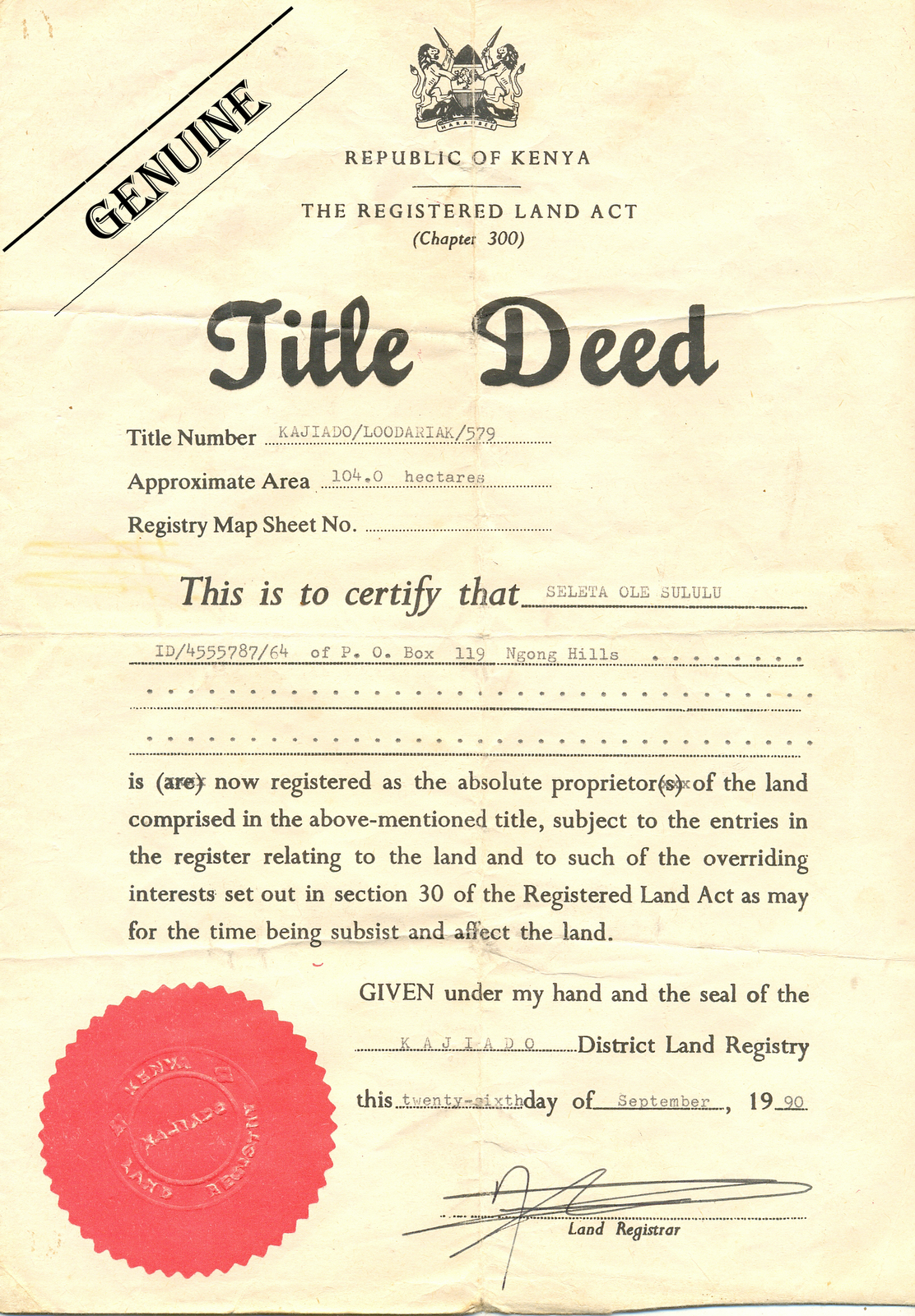Title Deed Verification in Kenya: A Critical Step in Land Acquisition

Title Deed Verification in Kenya: A Critical Step in Land Acquisition
In the process of acquiring land in Kenya, one of the most critical steps is the verification of the title deed’s authenticity. This process ensures that the seller is the rightful owner of the land and that the property is free from any disputes, claims, or encumbrances that could complicate the transfer of ownership. Title deed verification is essential for protecting the interests of the buyer and ensuring the legality and security of the land transaction.
Why is Title Deed Verification Important?
Title deed verification serves several important purposes in the land acquisition process:
- Confirms Ownership: It provides proof that the seller has the legal right to sell the land.
- Detects Frauds and Forgeries: It helps to uncover any fraudulent activities, including forged documents or impersonation of the rightful landowner.
- Reveals Encumbrances: The process uncovers any mortgages, liens, or other encumbrances on the property that may affect the buyer’s rights.
- Ensures Legal Compliance: Verifying the title deed ensures that the land transaction complies with Kenyan laws and regulations, reducing the risk of legal complications.
How to Verify a Title Deed in Kenya
The process of title deed verification involves several steps, typically carried out with the assistance of legal professionals or real estate experts. Here’s a breakdown of the key steps involved:
-
Obtain the Title Deed: The first step is to obtain a copy of the title deed from the seller. This document contains crucial information about the land, including the land registration number, the size of the plot, and the owner’s details.
-
Visit the Relevant Land Office: With the title deed in hand, the next step is to visit the Ministry of Lands or the County Lands Office where the land is located. These offices maintain records of all registered land within their jurisdiction.
-
Request a Land Search: At the lands office, request a land search for the plot in question. This search will provide a report detailing the current legal status of the land, including the registered owner’s name, any cautions or restrictions, and whether there are any charges or encumbrances against the land.
-
Inspect the Land Register: In some cases, it may be necessary to inspect the land register. The register provides detailed records of the land, including its history of ownership and any legal disputes or issues that have been recorded.
-
Verify the Details: Compare the information obtained from the land search and the land register with the details on the title deed provided by the seller. Ensure that all details match and that there are no discrepancies.
-
Check for Encumbrances and Disputes: Specifically, look for any indications of mortgages, liens, caveats, or other encumbrances on the land. Also, check for any ongoing legal disputes or claims against the property.
Housing Markets That Changed the Most This Decade
Nullam tempus sollicitudin cursus. Nulla elit mauris, volutpat eu varius malesuada, pulvinar eu ligula. Ut et adipiscing erat. Curabitur adipiscing erat vel libero tempus congue. Nam pharetra interdum vestibulum. Aenean gravida mi non aliquet porttitor. Praesent dapibus, nisi a faucibus tincidunt, quam dolor condimentum metus, in convallis libero ligula ut eros.
Conclusion
Verifying the authenticity of a title deed is a non-negotiable step in the process of purchasing land in Kenya. It safeguards the buyer’s investment and ensures that the land transaction is conducted legally and transparently. Given the complexity and importance of this process, prospective buyers are advised to engage with legal professionals or real estate experts who can navigate the intricacies of land laws and regulations in Kenya. By taking these precautions, buyers can secure their land investments against potential legal and financial risks.




